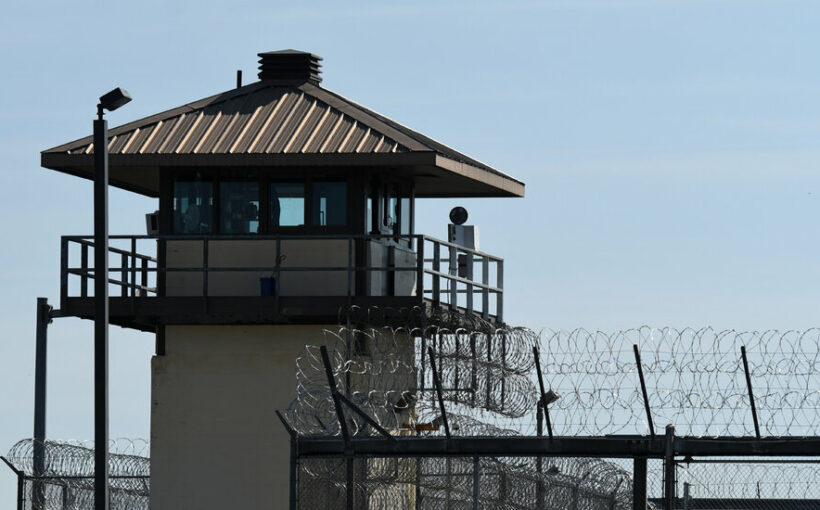When New York announced new vaccine eligibility guidelines two weeks ago covering millions of additional state residents, one particularly hard-hit group remained unmentioned: the nearly 50,000 people incarcerated in the state’s prisons and jails.
Now, with state supplies dwindling and no clear plan for vaccinating incarcerated people, the virus is roaring back behind bars. At least 5,100 people living and working in New York’s prisons have tested positive and 12 have died in recent weeks, outpacing even the early days of the pandemic.
But how and when to vaccinate incarcerated people as millions around the state wait has raised legal, logistical and ethical questions.
Across the country, the arrival of a vaccine was hailed as a harbinger of the pandemic’s eventual end. But administering the limited supply has proved challenging, and correctional facilities — where more than half a million people have tested positive for the virus since the start of the pandemic — present additional complications.
Officials grappling with the same difficult questions have come to different conclusions, creating a patchwork of policies and timelines, according to an analysis by the Prison Policy Initiative, a research nonprofit devoted to reducing mass incarceration. But at least 27 states directly name inmates in their public plans, and about a dozen place them in the first phases of vaccine distribution, including Massachusetts, where tens of thousands of prisoners are to be vaccinated by the end of February.
Other states plan to vaccinate prison and jail workers before incarcerated people, breaking with guidance from the Centers for Disease Control and Prevention, which recommends vaccinating everyone at correctional facilities simultaneously. Some, like New York, do not address those behind bars at all.
Vaccinating incarcerated people in the early stages of distribution has proved politically fraught. In New York, state senators have questioned whether prioritizing people in prisons makes sense. In Colorado, a draft plan to offer the vaccine inside prisons was met with fierce opposition for, as one district attorney wrote in The Denver Post, prioritizing “the health of incarcerated murderers” ahead of “law-abiding Coloradans 65 and older.”
In New York City the discussion about when and how to vaccinate incarcerated people comes as supplies dwindle.
The city’s vaccine tracker showed less than 7,710 first doses and around 202,000 second doses on hand as of Tuesday morning, with 72,409 second doses yet to be scheduled. It also indicated that 99,831 second doses have been administered out of 650,546 total doses so far, several hundred thousand short of Mayor Bill de Blasio’s goal of one million vaccine doses administered in January.
Mr. de Blasio said at a news conference on Tuesday that he wanted to use the pool of vaccines saved for second doses as first doses, but that he was still determined to get people their second doses. He cited new C.D.C. guidelines, which have not been studied in large clinical trials, that allowed a second dose to be given up to six weeks after the first in situations when receiving the second dose in the recommended three to four weeks later, depending on the vaccine, was “not feasible.”
“Anyone who gets a first dose will get a second dose,” Mr. de Blasio said. “The question is timing.”
Mr. de Blasio said that he hoped the coming Johnson & Johnson vaccine, which only requires one dose, will speed up the vaccination process. He said that the city should soon have infrastructure in place to vaccinate half a million people each week, if there is sufficient vaccine to do so.
Dr. Dave A. Chokshi, the city’s health commissioner, said on Tuesday that they expected about 107,000 doses from the federal government this week, without specifying whether they were intended for first or second doses, and that they would learn next week’s allocation in the next two days. Dr. Chokshi said the city had to postpone some first dose vaccination appointments and that he thought more notice about incoming supply would make it easier for the city to complete inoculations.
On Tuesday White House officials planned to announce that the federal government’s weekly allocations of coronavirus vaccine will increase by about 1.5 million doses to around 10 million in total. The increase will come from a release of more Moderna vaccine, though people familiar with Moderna’s production said that the newly distributed doses do not reflect an immediate increase in the overall amount of vaccine the company will deliver to the federal government in the first three months of this year.
At the state level, New York officials said they were preparing a plan for vaccinating incarcerated people. Public health experts broadly agree that they are at particularly high risk for contracting and spreading the virus; at least 8,800 people living or working in New York’s prison system have tested positive since the start of the pandemic.
And because guards, lawyers, workers and people entering and leaving custody move between the facilities and the community at large, the public health implications of outbreaks behind bars extend far beyond the prison walls. Officials said last fall that an outbreak at Greene Correctional Facility near Albany was linked to cases at an assisted-living facility and an elementary school.
Source: Read Full Article
